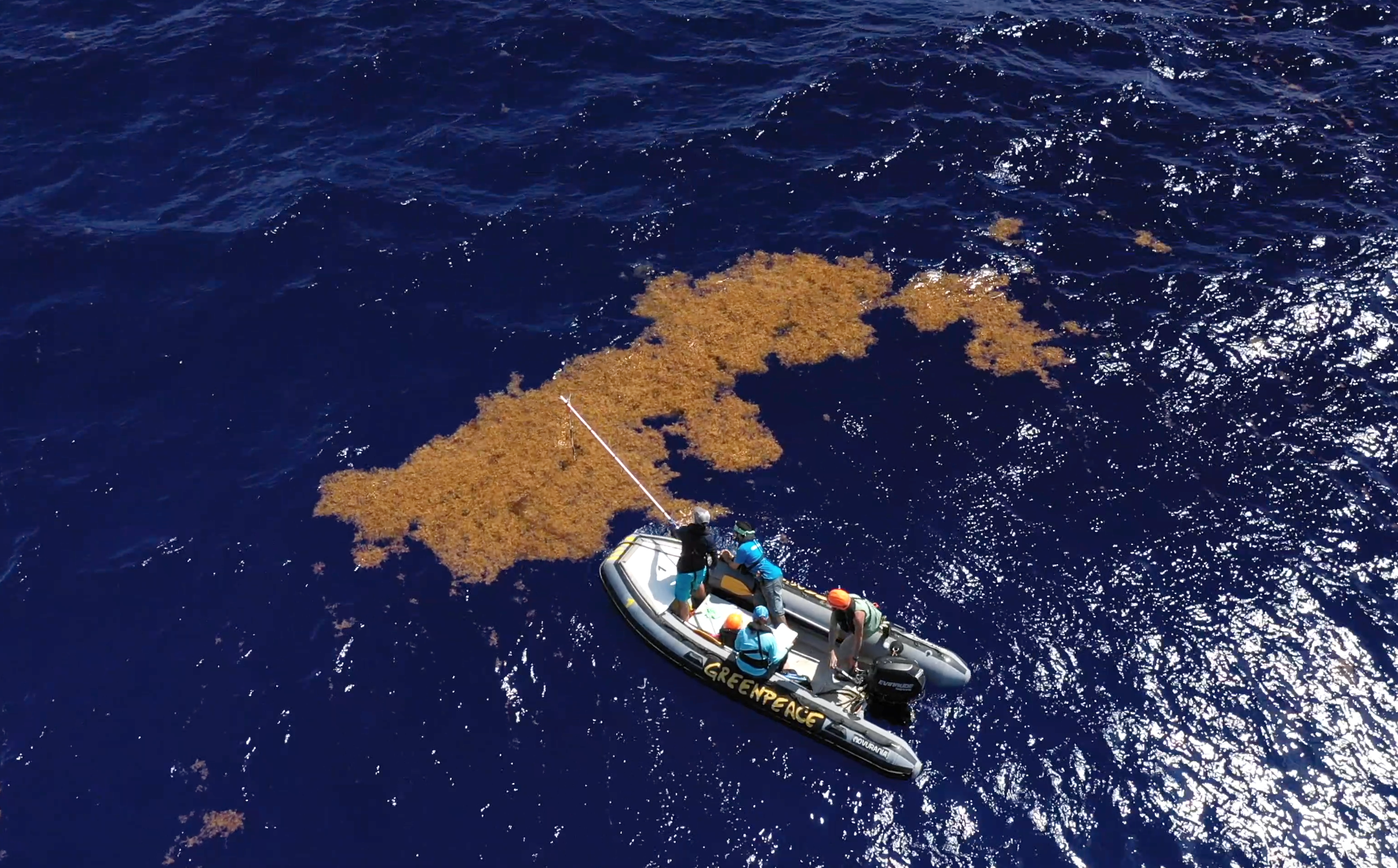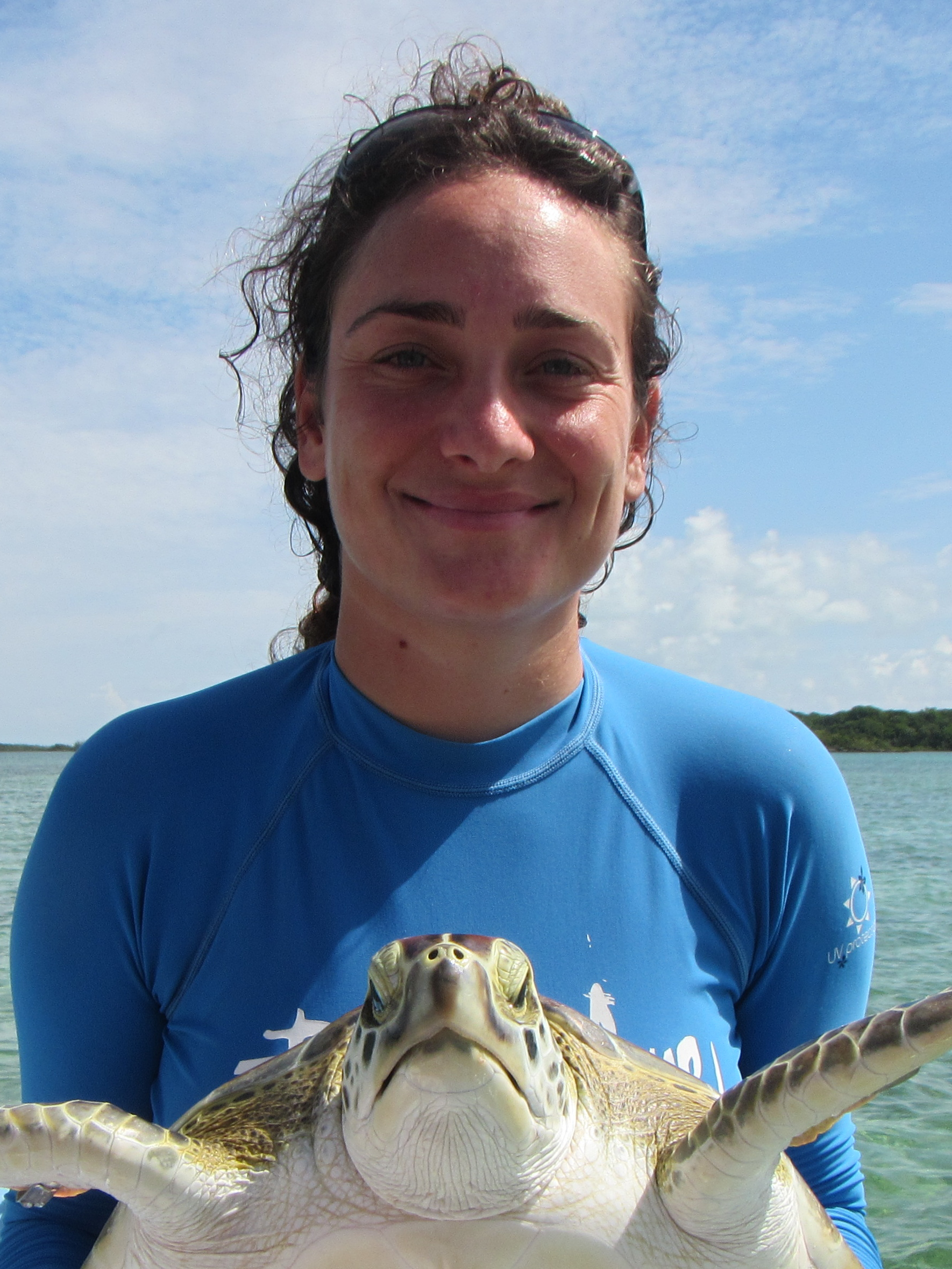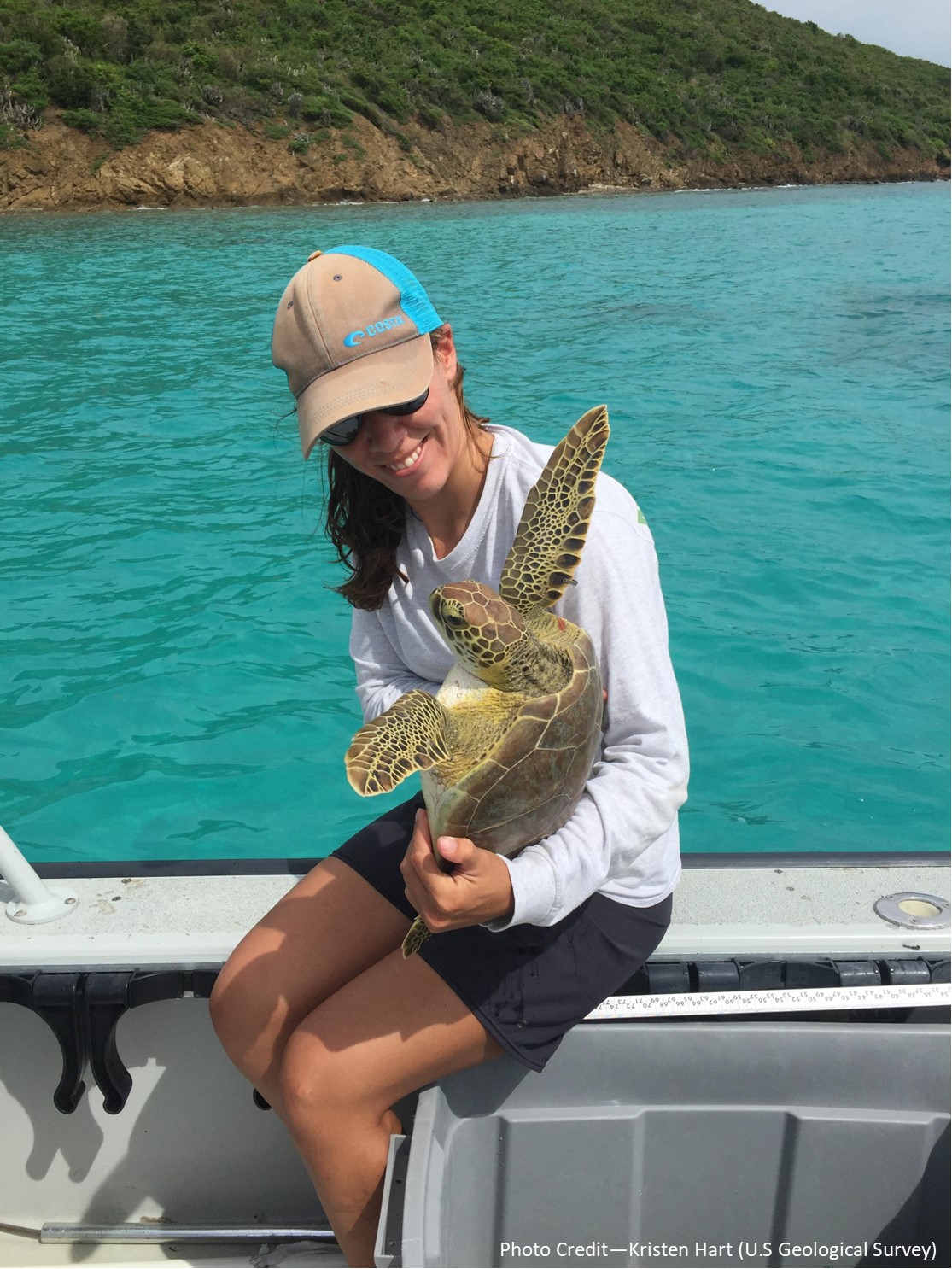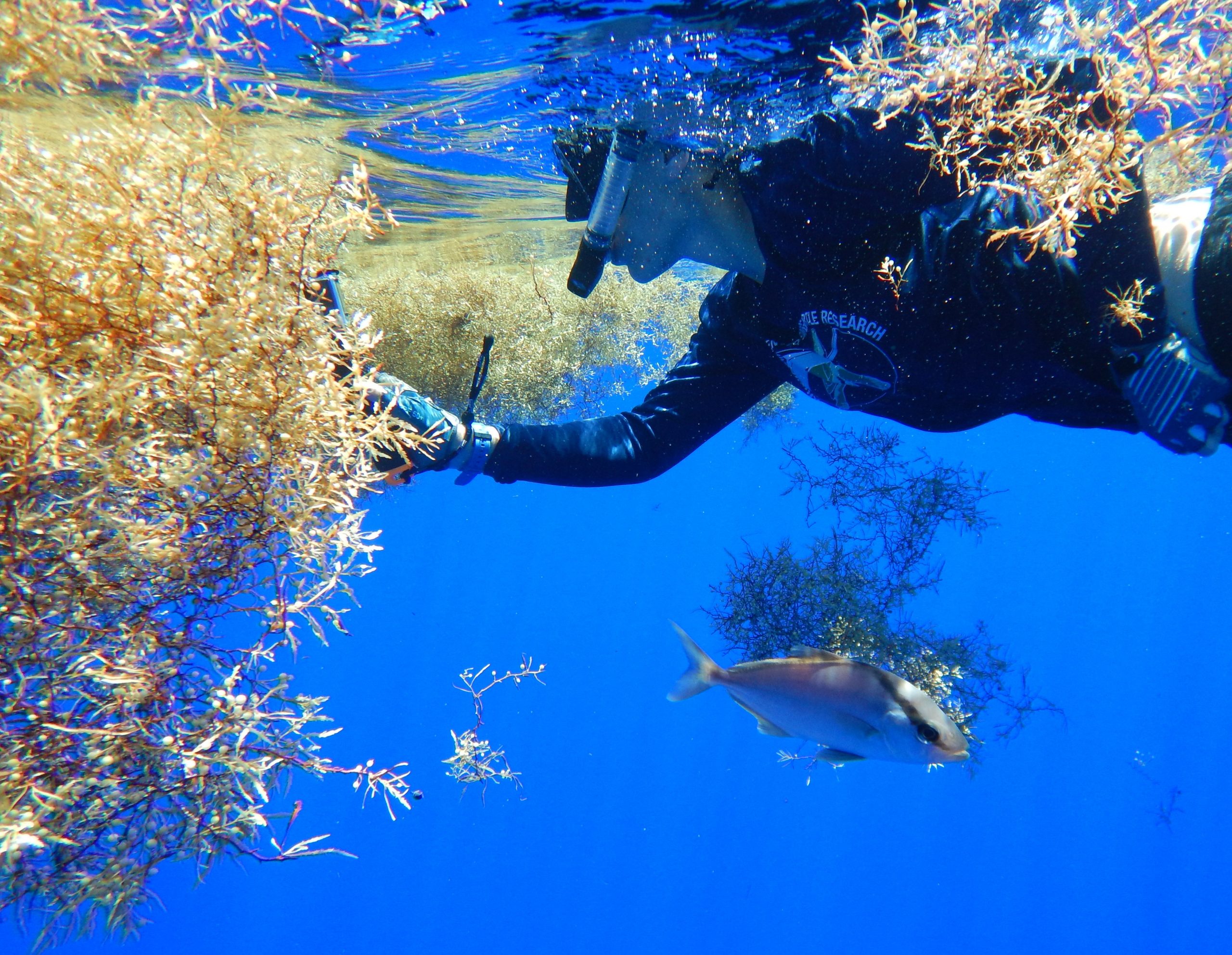
UF ACCSTR researchers measure water temperature in a Sargassum aggregation using a temperature probe rigged to an extendable pole. Photo by Tavish Campbell via Greenpeace
Oceanic Algal Colonies Found to Maintain Warmer Water Temperatures
UF researchers investigate the thermal properties of Sargassum colonies
In a first-of-its-kind study published in the prestigious journal Nature Scientific Reports (opens in new tab), a team of researchers from UF’s Department of Biology (opens in new tab) and the Archie Carr Center for Sea Turtle Research (opens in new tab) (ACCSTR) explored the thermal properties of Sargassum, a type of brown algae that floats on the surface of the ocean and can be found in massive colonies.

UF ACCSTR alumna Alexandra Gulick, PhD candidate Nerine Constant, ACCSTR Associate Director Alan Bolten, and ACCSTR Director Karen Bjorndal revealed that Sargassum colonies maintain higher temperatures compared to the surrounding open water. Their research has unveiled vital insights into the thermal qualities of Sargassum ecosystems, laying the foundation for future investigations.
Sargassum colonies are critical to open ocean ecosystems in the Atlantic and have been recorded in increasing quantities over the past decade. However, they remain enshrouded in mystery, sparking the curiosity of scientists who hope to unravel their secrets. Out on the open ocean, survival is challenging for those who do not sit atop the food chain. There is very little shelter, and species must travel long distances to find food. For fishes and other cold-blooded species, body temperature depends on the surrounding seawater, leaving them at the mercy of changing ocean conditions.

Sargassum colonies offer the perfect refuge for young sea turtles and smaller fish and invertebrates, with species like loggerhead turtles, Sargassum fish, juvenile dolphinfish, and Sargassum shrimp both living and foraging among the tangled branches in this unique habitat. Another valuable feature of Sargassum colonies is their ability to absorb solar heat while floating on the ocean’s surface, warming seawater within the colony. This phenomenon formed the focus of the UF researchers’ efforts.
“Temperature impacts how quickly organisms develop and grow, how fast they can move to catch prey or escape from predators, how many offspring they produce, and even rates of survival,” said Constant. “So, understanding how Sargassum aggregations affect water temperature improves our understanding of the importance of this habitat for other species.”
The team found that temperatures within even relatively small Sargassum colonies consistently exceeded those of the surrounding water, at times registering over a half-degree Celsius higher. They also found that Sargassum colonies maintained these higher temperatures below the surface and that surface water temperature was not only warmer but more stable in Sargassum colonies than in open water.
This research took place during the Greenpeace (opens in new tab) Pole to Pole expedition, a nearly year-long voyage focused on revealing the wonders of our ocean and confronting the threats they face. The study was conducted in the Sargasso Sea, a major Sargassum hotspot known as the “golden floating rainforest of the Atlantic Ocean”. Future UF-led research will shift to the areas outside of the Sargasso Sea where Sargassum is expanding, focusing on temperatures in larger colonies off the Caribbean coast of Costa Rica.

The overall goal of the team’s ongoing Sargassum research is to provide further insight into the value of this habitat and how the algae’s proliferation will affect associated fauna, as Sargassum colonies continue to spread. Those who frequent beaches along Florida’s coast may be familiar with this spread firsthand, as Sargassum washing ashore in massive quantities has become increasingly common in recent years.
“Quantifying exactly how fauna responds to temperature differentials is another important focus for future studies, said Constant, “particularly given predicted increases in seawater temperature under global climate change.”
Read the open-access article here (opens in new tab).
The authors thank the Greenpeace Oceans Campaign (opens in new tab) team and MV Esperanza crew for expedition planning and logistical support and UF undergraduate alumna Gabriela Gonzalez for assisting with the literature review.


